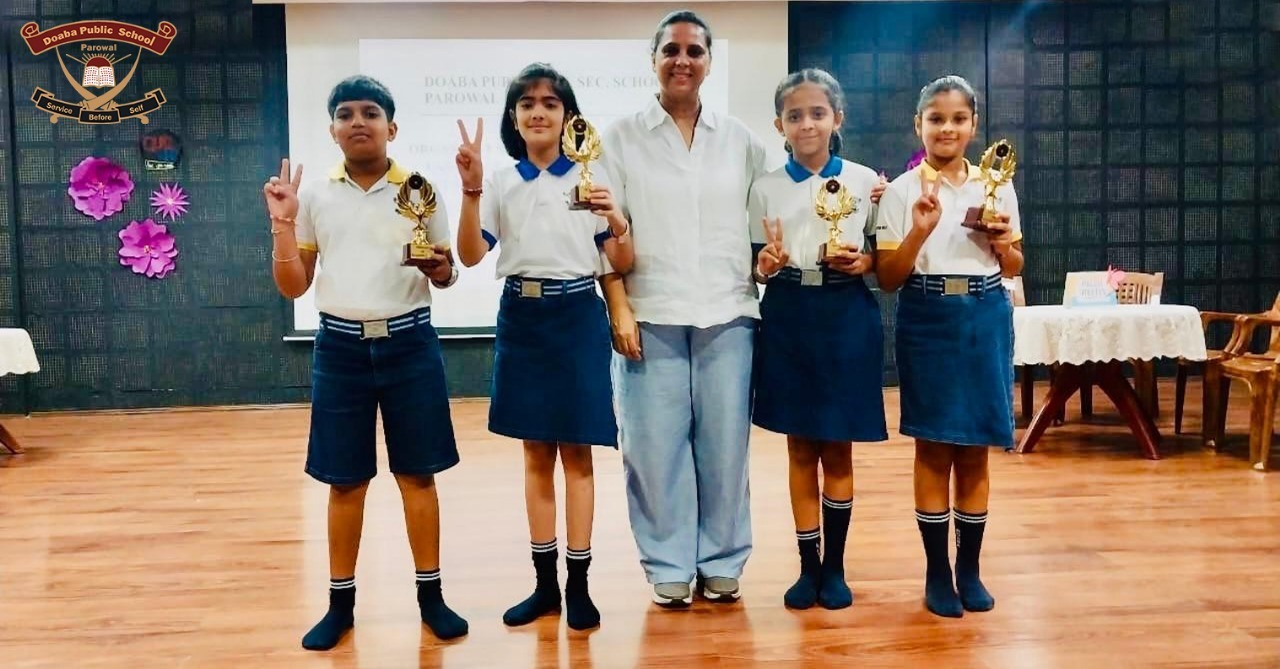
27 Oct How Doaba Public School’s ‘Emergent Curriculum’ Shapes 21st-Century Learners
Reading Time: 14 minutesIn today’s fast-changing world, education must go beyond rote learning — it must empower children to think critically, adapt creatively, and learn continuously. Doaba Public Senior Secondary School, Parowal, one of the top CBSE schools in Garhshankar, embraces this philosophy through its innovative Emergent Curriculum, a learner-centered approach that cultivates curiosity, collaboration, and real-world readiness.
What is the Emergent Curriculum?
The Emergent Curriculum is an educational approach that evolves from the interests, ideas, and experiences of students themselves. Instead of following a rigid, pre-set syllabus, teachers at Doaba Public School design learning experiences around what truly engages children — making education meaningful, relevant, and joyful.
This dynamic method ensures that learning emerges naturally, guided by curiosity and supported by expert facilitation. It allows students to take ownership of their learning, encouraging them to ask questions, explore solutions, and think beyond the obvious.
A Pedagogy that Prioritizes Inquiry and Exploration
At Doaba Public School, classrooms are vibrant spaces of exploration. Teachers keenly observe students’ interactions, questions, and responses to identify themes that spark interest. These themes then become the foundation for projects, discussions, and hands-on learning experiences.
For instance, a simple discussion about the weather might lead to a project on climate, ecosystems, or environmental conservation. This flexibility makes learning deep, connected, and interdisciplinary — essential traits of 21st-century education.
Encouraging Critical Thinking and Collaboration
Through the Emergent Curriculum, students learn to collaborate, communicate, and co-create knowledge. Group projects, peer discussions, and real-world problem-solving activities are integral parts of this approach. This helps students develop not just subject knowledge, but also life skills such as teamwork, adaptability, empathy, and decision-making.
Teachers act as facilitators rather than mere instructors — guiding students to think critically, reflect on their learning, and draw meaningful conclusions.
Integrating Modern Pedagogy with CBSE Framework
Doaba Public School seamlessly blends the Emergent Curriculum with the structured CBSE framework, ensuring academic rigor alongside experiential learning. Students master key concepts through interactive sessions, technology-aided learning, and inquiry-based activities that make every lesson engaging and purposeful.
This integration allows learners to meet CBSE academic goals while also developing a deeper understanding of real-world concepts — bridging the gap between knowledge and application.
Building 21st-Century Competencies
The ultimate goal of the Emergent Curriculum at Doaba Public School is to nurture independent, innovative, and emotionally intelligent learners. In a world that demands flexibility and creativity, this approach equips students with essential skills such as:
- Critical and creative thinking
- Communication and collaboration
- Digital literacy and problem-solving
- Empathy and global awareness
By engaging students in projects that connect classroom learning with real-life contexts, the school ensures that each child develops a sense of purpose and curiosity that lasts a lifetime.
Final Thoughts
Doaba Public School, Parowal, is redefining 21st-century education through its Emergent Curriculum — where learning is not confined to textbooks but inspired by the world around the child. As one of the Best CBSE School in Punjab, the school continues to lead with a vision that values creativity, inquiry, and lifelong learning.
At Doaba Public School, every child’s voice matters, every idea counts, and every experience becomes a stepping stone toward a brighter, more confident future.

Sorry, the comment form is closed at this time.